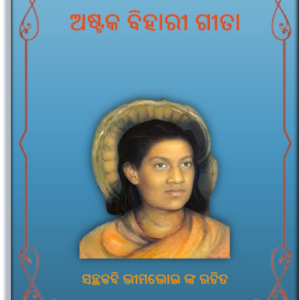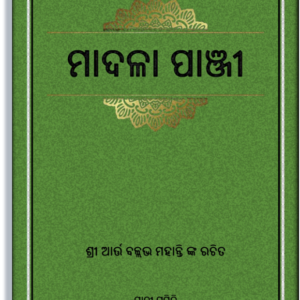The Life and Legacy of Santhakabi Bhimabhoi
Santhakabi Bhimabhoi, a distinguished blind poet and philosopher hailing from Odisha, India, is celebrated for his profound contributions to spirituality and literature. Born in the early 19th century, his entry into the world was marked by the challenge of blindness, a condition that would profoundly influence his worldview and creative expression. Despite the adversity he faced, Bhimabhoi cultivated a remarkable ability to perceive the world around him. This heightened sensitivity led to a unique understanding of spirituality, profoundly reflected in his poetic works.
In a society steeped in rigid Vedic traditions, Bhimabhoi emerged as a voice of inclusivity and reform. His poetry often challenged conventional beliefs, advocating for a more accessible approach to spirituality that resonated with all, irrespective of social strata or religious affiliation. His verses not only highlighted the essence of divine love and compassion but also articulated the struggles and aspirations of the marginalized. Through his work, he inspired a significant shift towards a more universal interpretation of worship.
The legacy of Santhakabi Bhimabhoi extends beyond his literary accomplishments. His life is an inspiring narrative of resilience, showing how creativity can thrive amid daunting challenges. Anecdotes recounting his interactions with fellow poets and common folk reveal a man deeply committed to sharing his insights and fostering community through spirituality. Bhimabhoi’s poems continue to be a source of inspiration for successive generations, encouraging them to explore their own spiritual journeys. His legacy is not just evident in Odisha but has also impacted the wider philosophical discourse, resonating with a growing audience that appreciates his profound insights into the human condition.
Worship Beyond the Vedas: Insights from Bhimabhoi’s Poetry
Santhakabi Bhimabhoi’s poetry offers profound insights into the nature of worship that diverges significantly from traditional Vedic rituals. Traditionally, Vedic worship has emphasized structured rites and a hierarchal approach to spirituality. In contrast, Bhimabhoi advocates for a more personal and heartfelt form of devotion, emphasizing the emotional connection between the devotee and the divine. His verses resonate with a spirit of inclusivity, urging individuals to embrace their personal experiences of the divine rather than adhering strictly to established religious norms.
Through his poetry, Bhimabhoi articulates the essence of worship as an intimate dialogue with the divine rather than a ritualistic obligation. For instance, in his celebrated verses, he presents a vision of spirituality rooted in personal reflection and emotional engagement. This shift from ritual to heartfelt devotion is encapsulated in phrases that encourage seeking the divine presence in everyday life rather than confining spirituality to formalistic practices. In one of his verses, he expresses that true worship transcends the grandeur of rituals, favoring simplicity and sincerity in connecting with God.
Moreover, Bhimabhoi emphasizes the presence of divinity within the individual. He challenges the idea that spirituality must conform to rigid structures and encourages the exploration of inner experience as a pathway to understanding the divine. This perspective invites devotees to look beyond the confines of written scriptures and embrace a more subjective and personal journey of faith. The relevance of Bhimabhoi’s teachings in contemporary spiritual discourse cannot be overstated. His approach promotes inclusivity and personal reflection, allowing modern practitioners to appreciate diverse pathways to the spiritual realm.
In conclusion, Bhimabhoi’s poetry invites a refreshing perspective on worship. His focus on personal devotion and emotional connections redefines spirituality in a manner that resonates with the contemporary seeker, making his insights timeless and relevant in today’s spiritual landscape.







Reviews
There are no reviews yet.